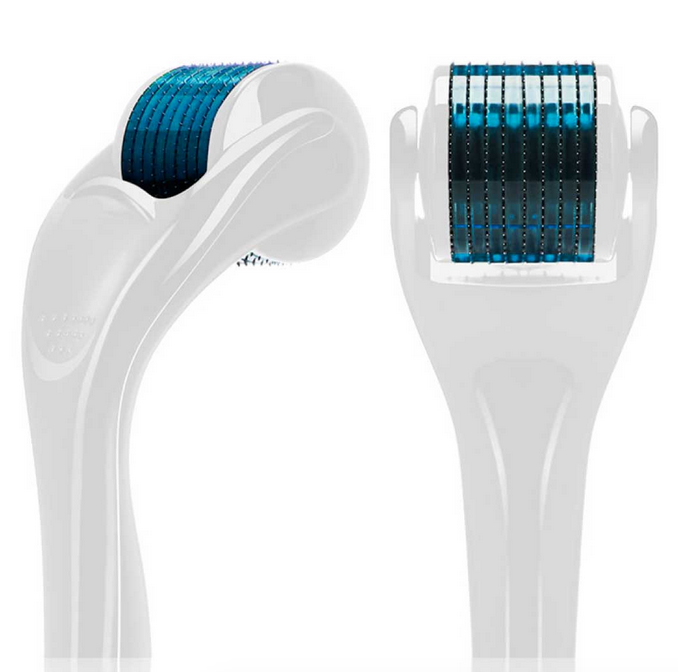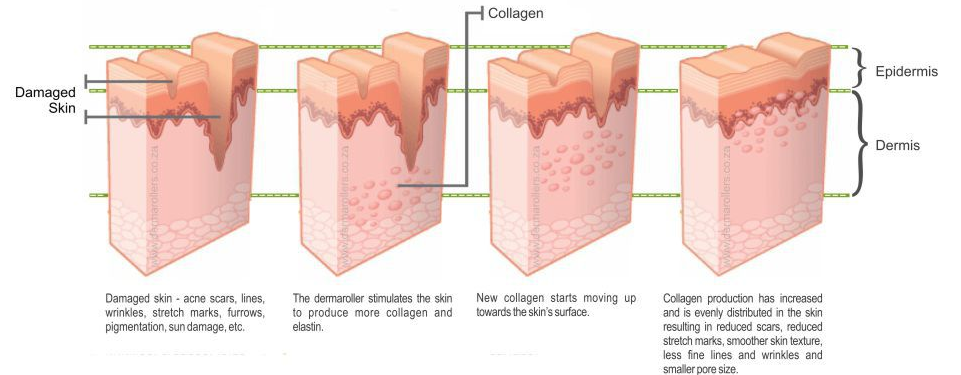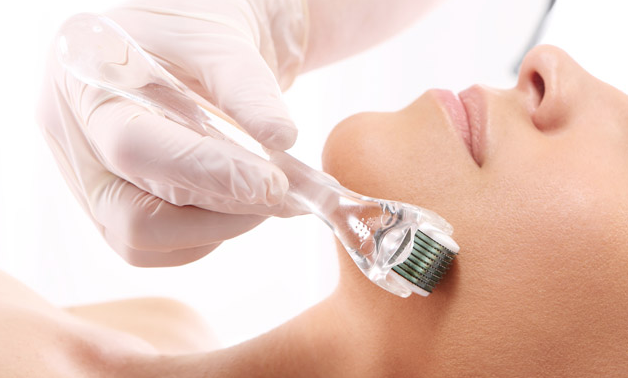So there’s been a bunch of circulating information about the ever so popular Dermaroller procedure or skin needling. So we thought we’d dive into the subject and tell you what we found out. Some are going the DIY at home technique but I think we’ll stick to the more technical professional approach to help you decide if dermarolling is for you.
Just how much are you willing to suffer for the sake of your skin and beauty? While a derma roller may look like some kind of a torture device, it’s actually quite helpful and not painful at all when used properly.
There are a plethora of benefits to derma rolling that can be taken advantage of when you follow a rolling-regimen, which is why it is one of the hottest skin-health practices today.
Dermaroller Procedure Ins and Outs
Anytime you are considering having a medical procedure you should learn the ins and outs of it, first. Skincare procedures are exactly the same. After all, your skin is your largest organ. It is also the one organ of your body that is on the outside. That makes it vulnerable to a lot of damaging things throughout your life, and you need to care for it carefully.
Dermarollers Are Simple Devices for Skincare
Although Dermarollers are relatively modern skincare treatments, they are also quite simple in design. There are no electronics or mechanisms involved. The Dermaroller device is simply a small rolling drum attached to a handle. Small needles are embedded into the surface of the drum so that, as a technician rolls it across your skin, the needles will cause tiny holes to be poked in your skin layers. The number of layers penetrated will be determined by the length of the needles, which is a thing your clinician will discuss with you at the time of your consultation.
Dermarollers Have Both Advantages and Disadvantages as Opposed to Lasers
If you are wondering if Dermarollers have advantages over lasers, the answer is that cosmetic laser repair procedures for the skin certainly have their place as well. The biggest advantage Dermaroller have over lasers is that they don’t produce a lot of heat as lasers do. Therefore, there are not as many burn risks.
Of course lasers also have advantages over Dermarollers. For example, a laser can perform a precise treatment on a very specific area. Dermarollers are better at treating larger areas in a more generalized fashion. Therefore, which treatment you choose will depend on the results you want and the circumstances of your case.
Dermarollers and Lasers Also Have Similarities
Although Dermarollers and lasers vary in many ways, including those mentioned above, they also have similarities. For example, lasers and Dermarollers can both treat wrinkles and related skin problems. Also, they can both do so by encouraging internal repairs through increased natural production of proteins and hormones. You can even get rid of scars with either Dermarollers or lasers in some cases.
Dermaroller Treatments Are Easy and Relatively Fast
If you are wondering how long Dermaroller appointments take, the answer is typically less than an hour. However, the exact amount of time varies. The act of rolling the Dermaroller device across your skin should only take a few minutes, but filling out paperwork and waiting for your skin to be numbed prior to the procedure can increase the time you will have to spend at your local skincare clinic for each appointment.
You May Need Multiple Dermaroller Appointments
When you schedule your first Dermaroller appointment you should be aware that it may be the first of several appointments that you need. It can take a few treatments before your skin health will actually start to visibly improve. Also, the passage of time may require you to have another series of treatments in the future, since the results of Dermaroller treatments are not permanent.
When scheduling Dermaroller appointments, your clinician should prevent you from scheduling them too close together. It can take several weeks for your skin to fully heal after a single session. Therefore, you must not have your next treatment too close to your previous appointment.






